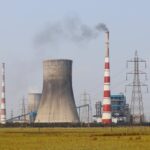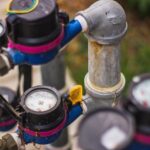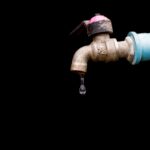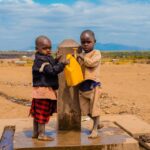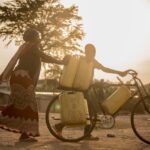Water Access in Crisis Zones – How NGOs Are Helping
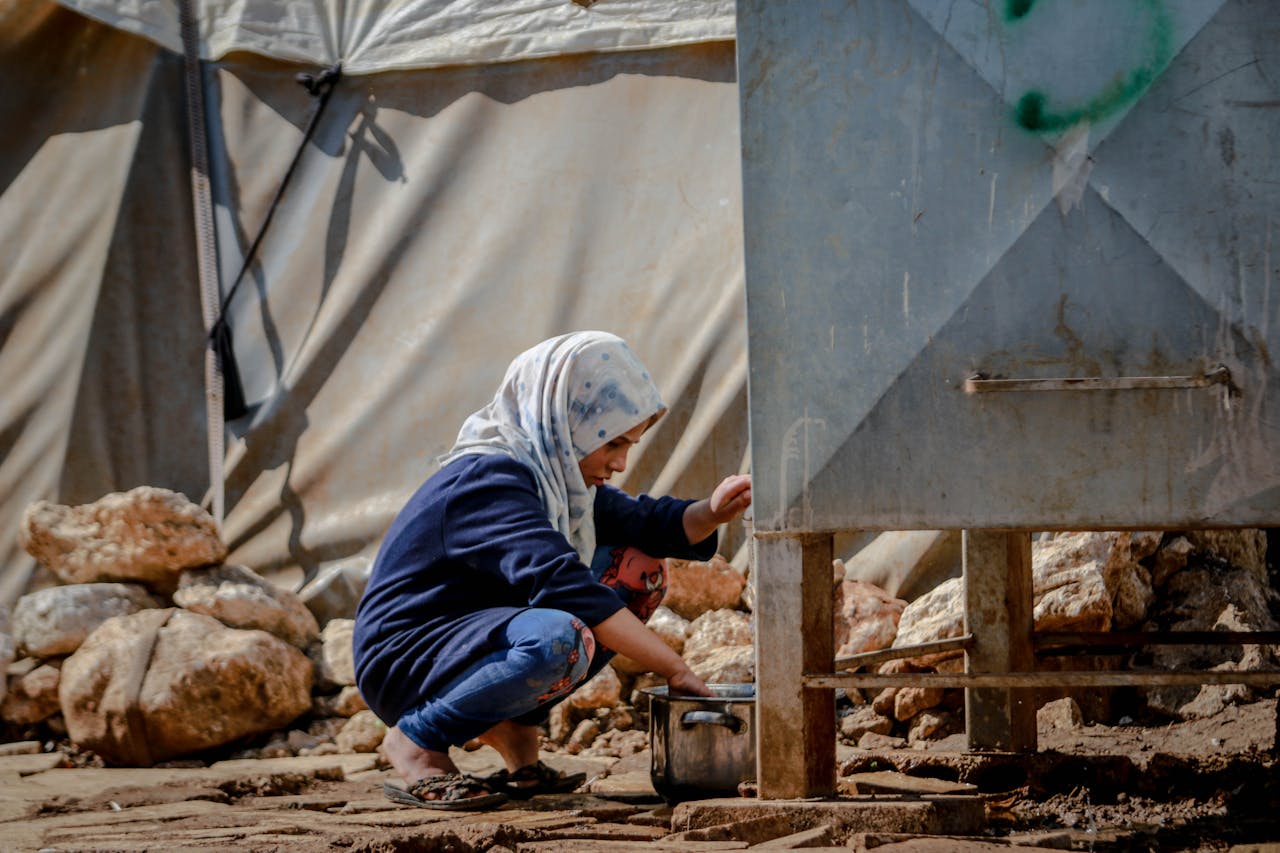
In conflict zones or areas hit by natural disasters, something as basic as clean water can become desperately hard to find. Families fleeing violence or destruction often struggle to access safe drinking water, which quickly turns into a life-or-death matter.
The numbers are alarming. Over 2 billion people around the world lack safe drinking water, and in regions facing turmoil, this problem only grows worse as water facilities are damaged or destroyed. Without access to clean water, communities are at serious risk of diseases like cholera and diarrhea, diseases that spread quickly and can be fatal, especially among the most vulnerable.
This crisis needs urgent attention. Governments and aid organizations work tirelessly to address these needs, but often they can’t keep up. In these times, nonprofits and their teams of dedicated workers step forward, putting every effort into restoring water access and protecting lives.
Challenges to Water Access in Crisis Zones
Providing clean water in crisis areas comes with massive challenges. Conflicts and natural disasters can wreck water systems, leaving pipelines broken, wells dried up, and treatment facilities inoperable. Without these, entire communities lose access to safe water.
People forced to leave their homes face even more difficulties. Many end up in temporary camps or settlements with no reliable water sources. Gathering water becomes a daily struggle, and women and children often have to walk long distances to find any, facing risks along the way.
Lack of funding makes matters worse. Limited resources mean that governments and aid groups often struggle to repair damaged water infrastructure. Without more investment, these affected communities stay locked in a cycle of water shortages and uncertainty.
Waterborne diseases are another major risk. When clean water isn’t available, people have no choice but to turn to unsafe sources. Outbreaks of diseases like cholera and diarrhea can spread rapidly, with severe consequences for already vulnerable populations.
Despite these challenges, there is hope. Nonprofit organizations step up, mobilizing resources and expertise to tackle the water crisis in these critical areas. Their work offers a lifeline for communities facing these tough conditions.
The Role of NGOs in Providing Water Solutions
In times of crisis, NGOs are often among the first to respond, mobilizing quickly to restore clean water access. With their agility, strong community ties, and technical know-how, these organizations deliver crucial, life-saving interventions.
One of the key roles NGOs play is distributing emergency water supplies. Within hours of a disaster, they set up water distribution points, ensuring that displaced families have immediate access to clean water. This often means bringing in essential items like water purification tablets, jerry cans, and other emergency supplies.
Beyond this immediate response, NGOs take on the challenging work of repairing and rebuilding water infrastructure. Engineers and technical teams work hand-in-hand with local communities to fix broken wells, pipes, and treatment facilities. In some cases, NGOs build entirely new, sustainable water systems to replace those destroyed by conflict or natural disaster.
Their work doesn’t end with physical repairs. Recognizing that long-term solutions depend on community support, NGOs prioritize local engagement and training. They teach essential hygiene practices, water conservation, and train community members to maintain the water systems, ensuring that these solutions have a lasting impact.
Case Studies: NGO Success Stories
The impact of NGOs in crisis zones worldwide is profound, which demonstrates the life-changing potential of having access to clean water. After Haiti’s devastating earthquake in 2010, organizations like Water Mission worked round the clock to provide safe water for 250,000 people and also trained community members on how to efficiently operate the systems and taught healthy hygiene behaviors to reduce the spread of disease. On a daily basis, IFRC and Spanish Red Cross trucks distributed 2.4 million litres of water to 94 water points in camps in Port-au-Prince to cater to the needs of 285,000 people.
A similar story unfolded in Mozambique after Cyclone Idai in 2019. Floodwaters had submerged entire communities, but NGOs like World Vision rushed in, giving nearly 400,000 people access to clean water and/or sanitation. Building and repairing schools and school latrines and repairing damaged boreholes. Their actions helped restore clean water access and prevented the spread of waterborne diseases.
Recently, a new organization, Aqua Maya, has stepped up to address water scarcity in West Africa. Recognizing the specific needs of the region’s most vulnerable communities, Aqua Maya has begun working to bring sustainable water solutions where access has been limited or unreliable. With a focus on West Africa, Aqua Maya is combining resources with local expertise to deliver clean, safe water to those who need it most, marking a fresh chapter in the fight for water security.
In active conflict zones, NGOs have been equally invaluable. In Yemen, NGOs like International Medical Corps constructed a new borehole and installed an integrated submersible water pump for nine villages that lacked access to clean water. With 45 solar panels to ensure uninterrupted power to the unit, the system has a capacity of 24,750 watts and can provide 138,600 liters of clean drinking water per day. The submersible water pump also features a chlorine-dispersing mechanism to keep the water free from pathogens.
The new water system changed everything as nearly 3,660 people can now access clean drinking water. The WASH team also helped people in the community to form a water management committee and trained them to operate and manage the project, providing a lifeline in one of the world’s worst humanitarian crises.
These success stories highlight the impact of NGOs’ work and their dedication to empowering communities. By restoring and securing water access, they lay the groundwork for health, resilience, and a hopeful future for all.
Challenges and Limitations Faced by NGOs
Despite these successes, NGOs face serious challenges in restoring water access in crisis areas. Funding remains a constant struggle. Providing clean water after disasters or in conflict zones requires large, sustained investment – resources that are often scarce.
Logistics present another major hurdle. Reaching remote or dangerous areas, navigating broken infrastructure, and working alongside local authorities and other aid groups can all slow down NGOs’ response times. The rapidly shifting conditions in these areas mean NGOs must remain flexible and adaptable.
Some NGOs also face technical limits. Large-scale water system repairs may require specialized engineering skills or equipment, which not all NGOs have. Rebuilding complex water networks after severe damage can stretch their capacity to its limits.
To overcome these obstacles, NGOs rely on innovation, relentless dedication, and collaboration. By refining their strategies, forming partnerships, and advocating for increased investment in water security, NGOs can continue to provide critical support, especially in vulnerable regions around the world.
The Future of Water Access in Crisis Zones
As climate change, conflicts, and natural disasters increasingly strain water resources, NGOs will play an even more essential role in ensuring clean water access in crisis zones. The sector is adapting rapidly to these challenges, driven by new technology and a focus on sustainable solutions.
Innovations in water purification and distribution now allow NGOs to respond more effectively. Portable desalination units, solar-powered pumps, and efficient filtration systems are just a few of the tools helping deliver sustainable water solutions to the hardest-to-reach areas. These advances mean NGOs can now quickly set up reliable water sources in places that once seemed impossible to reach.
However, technology alone isn’t enough. NGOs are placing a greater focus on training and building local capacity to ensure these water solutions last. By equipping community members to operate and maintain new water systems, NGOs help communities become self-reliant, fostering long-term water security rather than creating ongoing dependence on outside aid.
To fully realize this vision, however, will require much more global support. Governments, international organizations, and private donors must step up their investment and provide policies that back water access projects in crisis regions. With the right resources, NGOs can expand their work, ensuring that even the most vulnerable communities have the access to water they need.
Conclusion
In crisis zones, clean water access is not just a matter of convenience, it’s a cornerstone of survival. For millions affected by conflict, natural disasters, and poverty, NGOs are stepping in as vital lifelines. They’re more than just responders; they’re builders of resilience, hope, and health for communities facing immense challenges.
Organizations like Aqua Maya, a rising force in West Africa, embody the spirit and dedication required to make lasting change. By tailoring its solutions to the unique needs of local communities, Aqua Maya and other NGOs are not only meeting immediate water needs but are creating sustainable systems to support long-term water security. Through new technologies and community training, these organizations empower local people to maintain clean water systems and develop critical water management skills, strengthening self-reliance even in the most challenging environments.
But the scope of this work is vast and requires continuous support. As the climate crisis and global conflicts further strain resources, the role of NGOs will only become more essential. To ensure their efforts thrive, governments, donors, and individuals must rally behind these organizations. Supporting Aqua Maya and other NGOs means helping communities move from survival to stability, breaking cycles of dependency, and paving the way toward a future where everyone, regardless of their circumstances, has safe, accessible water.
The path forward is clear: by backing these NGOs, we contribute to a world where clean water is a right, not a privilege. In doing so, we uphold human dignity, foster resilience, and offer a foundation for health and prosperity even in the world’s darkest moments. Together, we can transform the future of water access in crisis zones into one of hope, stability, and enduring change.
Sources:
- https://www.un.org/sustainabledevelopment/water-and-sanitation
- https://watermission.org/news/after-the-earthquake-safe-water-for-our-brothers-and-sisters-in-haiti/
- https://www.ifrc.org/docs/appeals/10/MDRTH00821.pdf
- https://www.worldvision.org/disaster-relief-news-stories/2019-cyclone-idai-facts
- https://internationalmedicalcorps.org/story/bringing-clean-water-to-nine-yemeni-villages/


